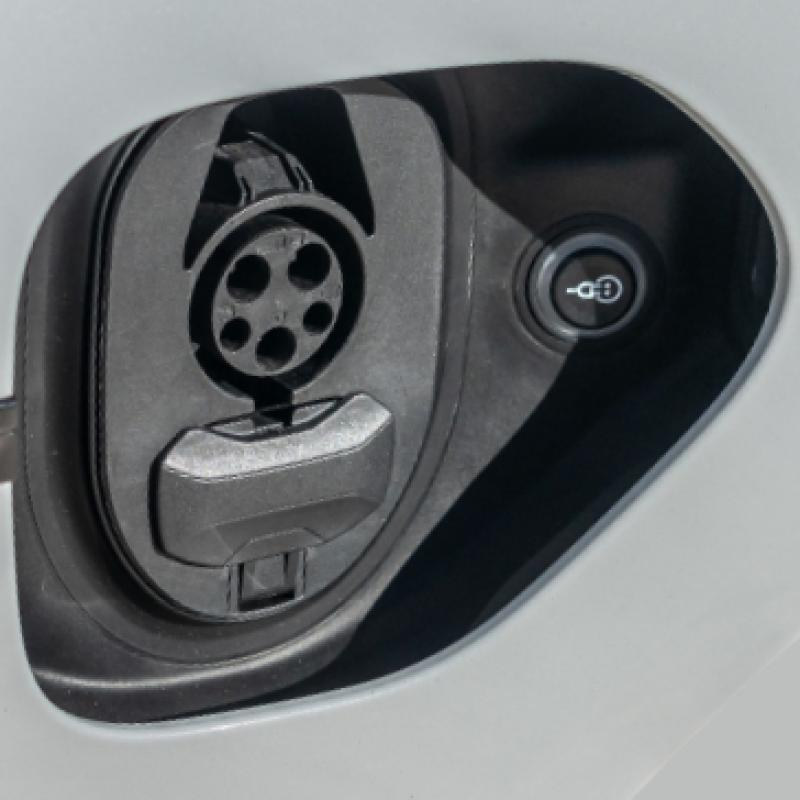EVs Could Soon Cost Same as Gas Cars as Battery Costs Drop
By: Roberto Baldwin (Car and Driver)


BloombergNEF predicts that by 2023, batteries will drop near the $100-per-kilowatt-hour threshold — good news for EV shoppers

I know, I know... we've got EV battery stories everywhere!
We're saturated. We aren't paying attention any more.
So someday soon we're going to be surprised by something we've known for a long time was coming...


- The average price per kilowatt-hour for batteries is expected to hit $101 in 2023, according to a report by BloombergNEF .
- That would make it possible for EVs to be priced the same as comparable gasoline-powered vehicles and likely increase their adoption.
- The report also notes that Bloomberg expects the average price of battery packs to hit $58 per kWh in 2030 and notes that solid-state batteries could help speed up the drop in prices.
In the showroom , electric vehicles still cost more than their gasoline counterparts. Sure there are tax credits, the maintenance is far cheaper, and charging can be cheaper than refueling in some cases. But it's that sticker price that keeps some shoppers away from the electric powertrain. This issue is especially important since vehicles from Tesla and GM have exceeded their allotment of electric vehicles eligible to receive the tax credit, meaning that people buying those vehicles are paying sticker price.
Fortunately, it looks like the cost per kilowatt-hour is continuing to trend down, and according to a new report from energy research firm BloombergNEF (New Energy Finance), the market average should be $101 per kWh by 2023. The $100-per-kWh price point is where experts expect the cost of EVs to match the prices of comparable gas-powered vehicles. If federal and state tax credits are still available at that time, it's likely that they could make an EV cheaper than a gas car to buy.
The report notes that the battery packs of buses in China have already dipped below the $100-per-kWh price point. As for the average global price for batteries in 2020 across all EV segments (including personal vehicles, buses, stationary battery solutions, and commercial EVs), it hit a new low of $137 per /kWh. That's an 89 percent drop from 2010, when the price was $1100 per kWh.
BloombergNEF cites increased production due to sales growth, falling manufacturing costs, the price of cathode materials, and new pack designs as the main contributors to the drop in price. Essentially, it's basic economics. If you make more of something, the prices fall as the entire ecosystem adjusts and becomes more efficient.
The report does say that hiccups could adjust the predicted price, but it still expects prices to fall to $58 per kWh by 2030. One way that could help reduce the price is if solid-state batteries finally become stable enough to go mainstream and end up in vehicles. The report says that the production costs of manufacturing these types of batteries are 40 percent that of current lithium-ion batteries.








Of course, it would evolve a lot faster if fossil-fuel vehicle owners had to pay their fuel at full price, rather than just one-third price, as they do today, thanks to tax breaks for Big Oil.
All Electric GMC Hummer, insane price, insane capability
They won't sell many, but what they have learned from building these will be in future GMCs for generations.
Dunno. I said that GM would wake up... back in 1970...
The Japanese were eating their lunch, but it was always "business as usual". It became obvious that successive CEOs were just keeping the lid on, as long at it took to get their humongous retirement package.
I wonder if GM is really capable of soul-deep reform.
Mustangs are only $42,000 so they will sell 50 of these to every $100,000 Porsche Taycan
I still think that the Mustang is on the high end of the price curve. An average buy for a new car is in the high thirties. The customer will pay a modest difference, but not ten grand.
I saw a TV ad today on Ford promoting its electric cars and trucks.
It's the future, get on board or get out of the way.
For now, they aren't cheap, and neither are the batteries
I wouldn't exactly call a Chevy Volt low cost for maintenance either. Living in Michigan I see them on the road for about 6 months of the year. Come the first snow fall they disappear. Did see a Volt in the ditch once- seems the driver didn't check the weather forecast.
The Volt no longer exists. It was a loss leader, and GM got rid of it as soon as possible.
Doesn't matter how much the batteries cost, they can be replaced under warranty if they fall below 60% efficiency for up to 8 years
or 100,000 miles, the Federal minimum.
The KIA KONA is warranted to the original owner for life.
Most people don't keep a new car that long. The average is 6 years.